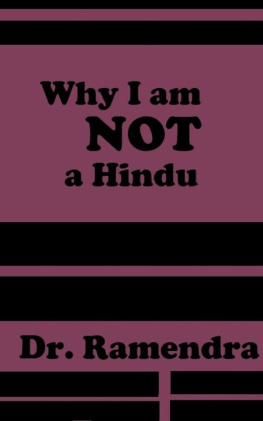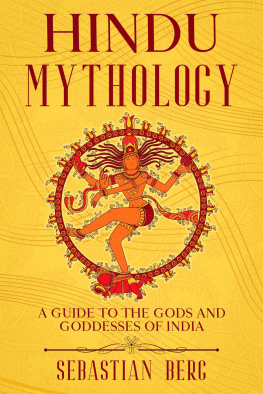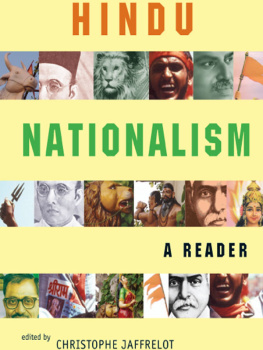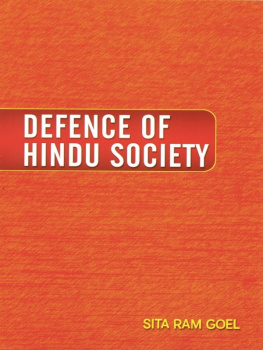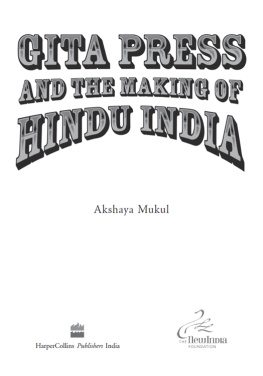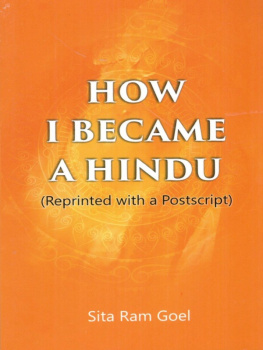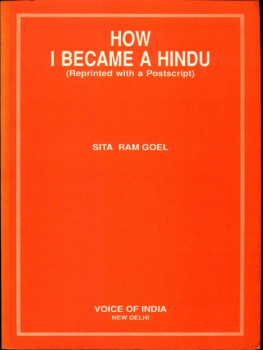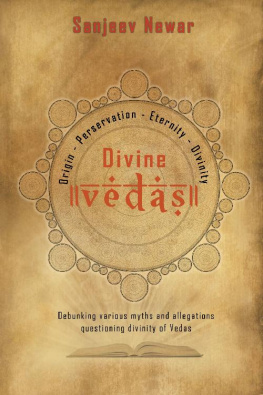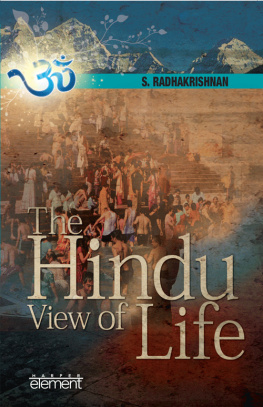Why I am Not a Hindu is a book every rationalist
should have on his bookshelves.
The Modern Rationalist , Chennai, India.
For the students of religion on the one hand and
for agnostics and atheists on the other, this book is
priceless, and for the ordinary reader it is thought
provoking to say the least.
The Hindustan Times , Patna, India.
Professor Ramendras bold manifesto in which he
explains why he rejects the doctrine of the infallibility
of the Vedas, varnashram dharma , moksha ,
karmavada , and avatarvada .
The Secular Web .
###
Why I am Not a Hindu
by Dr. Ramendra
rev 18. 05. 11
Print edition first published in 1993, second edition 1995
Third revised edition 2011
Published by Buddhiwadi Foundation
Copyright Ramendra 1993-2011
###
Kindle Edition
License Notes
This ebook is licensed for your personal enjoyment only. This ebook may not be resold or given away to other people.
Cover design by Priya
###
Also by Dr. Ramendra, Published at Amazon :
The Ethical Philosophy of Bertrand Russell
###
Table of Contents
Endnotes
Why I am Not a Hindu
I have read and admired Bertrand Russell's Why I Am Not a Christian . On the other hand, I have also read and disagreed with M.K.Gandhi's Why I Am a Hindu . My acquaintance with these writings has inspired me to write this essay explaining why I am not a Hindu, though I was born in a Hindu family.
The word "Hindu" is a much-abused word in the sense that it has been used to mean different things at different times. For example, some people even now, at least some times, use the word "Hindu" as a synonym for "Indian". In this sense of the term, I am certainly a "Hindu" because I do not deny being an Indian. However, I do not think this is a proper use of the term "Hindu". There are many Indians such as Muslims, Christians, Jews and Zoroastrians as well as rationalists, humanists and atheists who do not call themselves "Hindu" and also do not like to be described as such. It is certainly not fair to convert them into Hinduism by giving an elastic definition of the term "Hindu". Besides, it is also not advisable to use the word "Hindu" in this sense from the point of view of clarity. The word "Hindu" may have been used in the beginning as a synonym for "Indian" [1], but, at present, the word is used for people with certain definite religious beliefs. The word "Hindu" belongs to the category of words like "Muslim", "Christian", "Buddhist" and "Jain" and not to the category of words like "American", "British", "Australian", "Chinese" or "Japanese ". There are, in fact, many Indians who are not Hindus, and on the other hand, there are many Hindus who are not Indians , for example, those who are citizens of Nepal, Sri Lanka and some other countries.
In the religious sense, the word, "Hindu" is often used broadly to include Buddhists, Jains and Sikhs in addition to those who are described as "Hindu" in this most restricted sense of the term, that is, the adherents of Sanatana or Brahmin religion. For example, the expression "Hindu" is used in the Hindu law not only for those who are Hindu by religion but also for persons who are Buddhists, Jains and Sikhs by religion. This, again, is too broad a definition of "Hindu". If we consistently use the word "Hindu" in this sense, we will have to say that Japan is a Hindu country!
The above definition of "Hindu" is clearly inadequate from a philosophical point of view. Buddhism and Jainism, for instance, explicitly reject the doctrine of the infallibility of the Vedas and the system of varna - vyavastha , which are fundamental to Hinduism, that is, if the term "Hinduism" is used in its most restricted sense. Therefore, clubbing together Buddhists and Jains or even Sikhs with those who believe in the infallibility of the Vedas and subscribe to the varna-vyavastha is nothing but an invitation to confusion.
Though I agree with Buddhism in its rejection of god, soul, infallibility of the Vedas and the varna-vyavastha , still I am not a Hindu even in this broad sense of the term "Hindu", because as a rationalist and humanist I reject all religions including Buddhism, Jainism and Sikhism. However, in this essay I am concerned with explaining why I am not a Hindu in the most appropriate sense of the term "Hindu", that is, the sense in which a person is a Hindu if his religion is Hinduism in the restricted sense of the term " Hinduism". In this restricted sense of "Hinduism", Buddhism, Jainism and Sikhism are excluded from its scope. I also maintain that this is, at present, probably the most popular sense of the term. In this restricted sense Hinduism is also.referred to as "Sanatana dharma" (eternal religion) or "Brahminism".
Radhakrishnan, for example, has used the term "Hindu" and "Hinduism" in this restricted sense when he says in his The Hindu View of Life that, "The chief sacred scriptures of Hindus, the Vedas register the intuitions of the perfected souls." [2] Or, when he says that "Hinduism is the religion not only of the Vedas but of the Epics and the Puranas." [3]
Gandhi, too, has used the term "Hindu" in this restricted sense, when writing in Young India in October, 1921, he says:
I call myself a sanatani Hindu, because,
1. I believe in the Vedas, the Upanishads, the Puranas and all that goes by the name of Hindu scriptures, and therefore in avatars and rebirth.
2. I believe in the Varnashram dharma in a sense in my opinion strictly Vedic, but not in its present popular and crude sense.
3. I believe in the protection of the cow in its much larger sense than the popular.
4. I do not disbelieve in idol-worship. [4]
One may be tempted to ask, at this point, whether all the beliefs listed by Gandhi are really fundamental to Hinduism. In my opinion, (I) the belief in the authenticity of the Vedas and (II) the belief in the varnashram dharma are more basic to Hinduism than the belief in cow-protection and idol-worship. [5] Though it cannot be denied that idol-worship is practiced widely by the Hindu masses, and there is, at present a taboo on eating beef among a large number of Hindus. In any case, I am in a position to establish the fact of my not being a Hindu by asserting the contradictory of each of the above statements made by Gandhi:
In other words, I assert that I am not a Hindu, because,
1. I do not believe in the Vedas, the Upanishads, the Puranas and all that goes by the name of Hindu scriptures, and therefore in avatars and rebirth.
2. I do not believe in the varnashram dharma or varna-vyavastha either in the sense in which it is explained in Hindu dharma shastras like Manusmriti or in the so-called Vedic sense.
3. I do not believe in the Hindu taboo of not eating beef.
4. I disbelieve in idol-worship.
However, while explaining why I am not a Hindu, I will concentrate mainly on (I) the belief in the authenticity of the Vedas, and (II) the varnashram dharma , which I consider more fundamental to Hinduism. Besides, in the concluding section of the essay, I will briefly discuss moksha , which is regarded as the highest end of life in Hinduism, and some other Hindu doctrines like karmavada and avatarvada .
First of all, let me explain what do I mean by saying that "I do not believe in the Vedas", and why I do not do so.
The schools of ancient Indian thought are generally classified by orthodox Hindu thinkers into two broad categories, namely, orthodox ( astika ) and heterodox ( nastika ). The six main Hindu systems of thought -- Mimamsa, Vedanta, Sankhya, Yoga, Nyaya and Vaisheshika -- are regarded as orthodox ( astika ), not because they believe in the existence of god, but because they accept the authority of the Vedas. [6]

